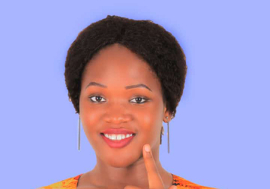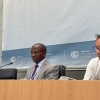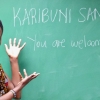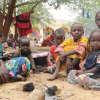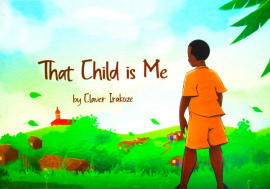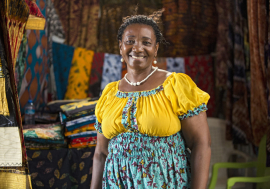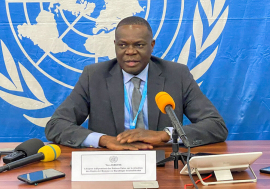She still chokes at the thought of her missing daughter. Over the last five years, Yana Galang says, “I can’t stay three days without tears rolling down my eyes.”
Ms. Galang is the mother of Rifkatu, one of the 276 schoolgirls forcibly taken from a dormitory in Chibok, a small town in the northern Nigeria’s Borno state on the night of 14 April 2014. Boko Haram, an armed group in the region, claimed responsibility for the kidnappings.
In September this year, Ms. Galang travelled to the United Nations headquarters in New York where world leaders were meeting for the General Assembly to remind them, and the rest of the world, not to forget the Chibok girls who are still missing. She asked for help to bring them back home.
“As a mother, if your child goes out and stays so long, you worry about it,” she said in an interview in New York.
Boko Haram has been waging a brutal insurgency in the northern Nigeria region since 2009. Caught up in the conflict, under frequent attacks and fearing for their lives, many civilians have fled their homes. Some of them took shelter in other parts of Nigeria. Others crossed the border and sought refuge in neighbouring countries such as Cameroon, Chad and Niger, triggering a humanitarian crisis across the borders.
Killing and kidnapping of civilians are common with Boko Haram. Yet the mass abduction of the girls from a secondary school shocked and mobilized the world around the ‘Bring Back Our Girls’ campaign aimed at securing their release.
Several countries and organisations offered their support. Over the years, about half the girls either escaped or were freed and reunited with their families. However, 112 others including Rifkatu, are still missing.
“As of now, it has been five years, yet I haven’t seen my child,” Ms. Galang laments.
The global outrage has waned, but back in Chibok, hundreds of mothers are still longing to be reunited with their daughters. Their pain and anguish remain.
‘Daughters of Chibok,’ an award-wining virtual reality documentary by Nigerian filmmaker Joel Benson, aims to revive interest in the missing girls. Ms. Galang is the main character.
“I miss my child,” Ms. Galang told Africa Renewal in an interview.
She tells of a ritual in which she often brings out Rifkatu’s clothes, washes them and puts them away in the hope that she will find them clean when she comes back home.
For some of the freed Chibok girls, however, it has been double tragedy. They were not always welcomed back with open arms upon return. Impregnated in captivity, some of the girls have been shunned by their families.
In these circumstances, Ms. Galang tell us her laundry ritual takes on a deeper meaning. It is about staying attached to the memory of her daughter and sending the message that Rifkatu will not suffer rejection when she returns.
“It is not about the clothes. It is my way of showing how much I love her,” she says.
More than 1,000 children, including the Chibok girls, have been abducted by Boko Haram over the last six years, according to UNICEF. At least 2,295 teachers have been killed and more than 1,400 schools have been destroyed in the attacks that started about 10 years ago.
As part of the international community’s efforts, the United Nations is providing humanitarian assistance to the refugees and internally displaced persons affected by the conflict in the sub-region, including ensuring that conflict-affected children, adolescents and caregivers in Chibok receive quality psychosocial support.
UN agencies are also helping children in safe areas return to school. By the end of 2018, nine education facilities had been improved and 4,000 students had resumed classes, according to UN Development Programme (UNDP) in Nigeria.
But the Chibok mothers wish for more support.
Ms. Galang cannot remember “all the important people” she met, but her message to them was consistent, representing the hope of all the Chibok mothers: “I want them to join hands with the Nigerian government … to support the Nigerian government… to find a way of bringing our girls home.”



